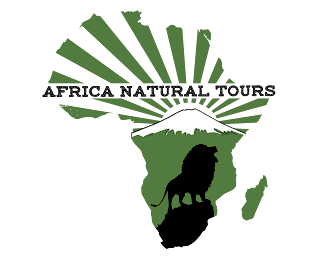7-day
Community Based Tourism - Rwanda: Africa Natural Safari
AFRICA
NATURAL SAFARI (The best tour company in Tanzania)
Specialized
in: Wildlife safaris, Cultural tourism,
and Beach holidays and
Mountain
climbing
Contact
+255 653 679 958
7-day
Community Based Tourism - Rwanda
Day 1: Arrival
Arrival
in Kigali – welcome by your tour guide – check-in at hotel – optional afternoon
activities (depend-ing on time of arrival) – overnight at hotel of your choice
(Comfortable).
Day 2:
Kigali
city tour, Genocide Sites and the Reconciliation Village in Bugesera:
Kigali
city tour – also visiting Gisozi Memorial Site and wind up the day by visiting
more genocide me-morial sites and the reconciliation village in Bugesera.
Overnight at recommended hotel.
Day 3:
Pastoralist
Heritage: The culture of pastoralist has been hereditary; the social
characteristics of the Rwandese pastoralists can still be traced in parts of
the eastern province in Gatsibo district and Nya-gatare district. The rural
life in these villages elegantly and conventionally gives a very unique experience
about the culture of grazing, introduces you to the history and values of cows
in Rwanda including the INYAMBO cows which were very significant in many
cultural festivals brought up by Kiawah. The beauty of a cow is exhibited in
the cultural dances of Rwanda. The tour takes to the pastoralist village where
observe and participate in the tradition cattle grazing; get ready to make your
own traditional rain coat from grass, learn how to milk with your own hands and
no machines here. After milking, the pastoralist will show you different
calabashes used in preserving milk and qualification it take to make one; this
goes in line with norms of handling calabashes, drinking milk etc. Milk is used
in different ways for example taken fresh after milking, fermented to make
yoghurt in a traditional way and the unforgettable experience of making ghee
which ends with cooking local food with you own ghee and eating your own ghee.
Tour ends with visiting some monuments left behind by the former kings.
Overnight at recommended hotel.
Day 4:
IMIGONGO
TOUR: The tour introduces our visitors to the unique modeling and paintings
called IMIGONGO literally meaning backs or back in singular; developed by the
Rwandese society long time ago around 1500years by Prince Kakira the son of
King KIMENYI of Gisaka kingdom part of the great Rwandan kingdom in current
eastern province. Kakira invented the idea of embellishing and making more
attractive art designs for decorations in the houses. They use cow dung from
calves and mix it with ash and then make different designs ranging from the
back of elephant, elbow designs to mention but a few because the designs come
from their memories about different things or items etc. They have over ten
different designs with well documented interpretations.
The colours used come from natural soils and plants for instance white comes from kaolin, red from natural clay soil forming ochre, the black colour from the sap of the aloe plant – Igikakarubamba mixed with ash of peeled banana and solanum aculeastrum plant – Umutobotobo. This type of art craft is very unique and only found in Rwanda. The other important part of the tour is that, it's helping in maintaining this culture from where it originated since we discovered that this cultural practice of IMIGOGO was fading out in the community but after introducing the tours, the community members are now getting back to their traditional art craft practices as it helps in preserving the culture, provide incomes to the members of the community.
Day 5: Ethno Botany Tours:
Acquire
traditional skills and methods used in identifying diseases and the traditional
remedies. Go into the field with traditional healers and learn on how the
seeds, leaves, barks, roots and fruits can be used to cure a number of diseases
by mixing or not mixing them. Insects, lianas, lichens etc all play a
significant role. Afternoon, visit a local home where the women share their
experiences in making traditional dishes.
Back
to hotel. Overnight at recommended hotel or spend a night in a Rwandan home.
Day 6: Banana and Sorghum beer
production:
Banana
and sorghum are some of our staple
Food
products in Rwanda and they are used in different ways i.e.as food, local
beer/drinks and very important in the cultural practices most especially during
our traditional weddings ceremonies, settling of disputes between community
members, bonding relationship between different families etc. Rwanda has four
different species of banana plants and each species of banana plant has got
unique uses and values; practically, the visitors will learn and understand
while in the field. Sorghum production is quite complicated but made simple to
experience and really a thrilling experience. Overnight at recommended hotel.
Day 7: Cultural and departure:
Kinigi
Cultural Village/ COMMUNITY TOURS: Get to understand the culture of the
Rwandese through their daily life and knowledge of the environment, poetry,
folklores, dancing, singing, pottery and the theoretical hunt gathering skills.
It's one of the thrilling experiences and very adventurous as you try to adapt
to the traditional hut homes and lifestyle – transfer back to Kigali and to the
airport
For more information visit www.africanaturaltours.com
































No comments:
Write comments